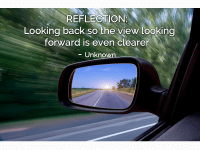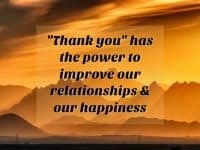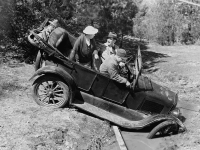Tina Hallis's Blog, page 13
February 14, 2021
Getting to Know Our Judge

Last week I was playing the new digital Monopoly with my 15-year-old daughter. She had more money and more property than me. I was feeling a little frustrated and noticed I wasn’t having much fun. Then I thought back to when she was just a little girl and how I would try to let her win. I reminded myself that it wasn’t about winning, it was about spending time together. In that moment, my perspective and energy shifted.
A couple of days ago, my husband asked our daughter and me if we would watch a video on global warming with him. He was wondering what we thought about the controversial opinions and ideas shared by the speakers. After we listened to these interesting perspectives, I was surprised at the passionate and in-depth response from our daughter. At first, I wanted to challenge her on some of her opinions, but I noticed how my husband was encouraging her to share. I reconsidered my intentions and decided that I should focus on being curious.
I wanted to share these two examples of how I’ve been working on noticing my “Judge Saboteur.” This fascinating concept comes from one of my favorite books on Positive Psychology; Positive Intelligence by Shirzad Chamine. One of the things I love about Shirzad’s approach is how he personifies the survival instinct and negative bias in our brains by calling out 10 different saboteurs. You can learn more about each of them in my previous tip.
Shirzad points out that we all have a judge in our heads. This voice loves to judge ourselves with a style that can range from being loud and obnoxious, yelling that we’re not good enough, to whispering that we need to be right to protect our self-worth. It judges situations, like my frustration at being behind in Monopoly. It judges other people, like when I wanted to challenge my daughter’s thoughts on global warming.
The great news is that noticing our judge and labeling it can take away much of its power. And the more we practice tuning in, the easier it gets. It’s already made a big impact on my life!
Give it a try this week. See if you can notice your judge taking over. Is it mean and nasty? Or sly and sneaky?
February 7, 2021
What Songs Bring Back Fond Memories? Let’s Reminisce!

Yesterday morning I was listening to music as a positive intervention. As I was looking for the next song, YouTube suggested an A Cappella version of “Angel’s Among Us.” I loved this version and was teary-eyed by the end.
A few minutes later we were sitting around the table eating breakfast when my husband asked if he could share a story. He turned to our daughter and said, “I remember when you were little I was often the one to take you to swimming lessons at the pool. You were old enough to go into the women’s locker room to change by yourself, and I would anxiously wait for you on the other side. I would worry that you might go out the wrong door and end up back in the main hall instead of the pool area. But it was even worse when it was time to leave and I was waiting for you to dry off and get dressed. It seemed like you took forever. I’d be concerned that something had happened to you!”
He continued, “Then one day, one of the moms came out with her girl and told me that you were just about ready and would be out soon.” Suddenly, I realized there were other people looking out for you. I was relieved to know I didn’t have to worry.”
His story reminded me of the song; here was one of those angels among us.
Pretty soon, I was joining in with memories of her swimming lessons, like when she was so little we had to be in the pool with her. Taking the time to reminisce flooded my mind with happy memories. And how interesting that a song had started this cascade.
So often our thoughts dwell on unhappy memories like past arguments, dramas, or times people made us upset. But we can intentionally choose to replay past happy moments and songs can be great catalysts to get us started.
What songs bring back fond memories for you? Who can you talk to this week and reminisce about these special moments? “Do you remember when . . . ?”
January 31, 2021
How Can You Enjoy More of the Good in Life? Practice!

A friend of mine recently started a job at an assisted living/nursing home. She was telling me how new arrivals are quarantined in their room for the first two weeks. There are no visitors, and many residents are confused as to why they can’t go home. She said the situation feels depressing.
Fast forward to last night. I volunteered at a teen mental wellness event. We talked about resilience, emotions, depression, and suicide. Some of the kids shared their struggles, from bullying to inner demons. I was inspired but also scared for these young souls.
Both of these remind me that I’m terribly spoiled. In fact, I’m a little embarrassed by how good I have it. I have a wonderful and healthy family. I have a comfortable home. I live in a beautiful setting. Most of my life is pretty easy. I live during a time when there is an abundance of conveniences, from cell phones to indoor plumbing. I have the freedom to pursue my dreams. I have access to technology that allows me to literally see my friends and to work from home.
Yet, it’s easy for me to focus on and think about the things I wish I had or wish were different. I wish it was summer or that I lived somewhere warmer. I wish I had a newer car. I wish I had reliable fiber optic internet. I wish I could heal my plantar fasciitis that has plagued me for the past year. I wish the pandemic would end so people could gather with friends and family more. I wish, I wish, I wish . . .
If I don’t intentionally remind myself of all the good in my life, I can easily spend my time and energy wishing. Now I know that seeing the negative side of life is normal. And I’ve also learned that just like getting better at a sport or musical instrument, getting better at noticing all my blessings takes practice.
I practice before I go to sleep at night. Sometimes I practice when I’m driving. Sometimes I practice before a meal. Sometimes I practice when I hear about someone else’s struggles. I have a lot of room to improve so I will keep practicing.
How about you? When do you or could you practice?
January 24, 2021
Need a Boost? Turn Up the Music

I’m driving in my car on my way to an appointment. I’m in a bit of a funk. The day is gray and so is my mood. It taints my thoughts with discouragement; about the day, my work, my life, the world in general. I decide to turn on the radio.
A few minutes later, I hear the familiar beat and notes from the beginning of one of my favorite songs. Instantly, something in me shifts. I feel a new sense of hope and determination as Kelly Clarson belts out, “What doesn’t kill you makes you stronger! Stand a little taller.” Pretty soon I’m singing along; loudly. Even though this song is about a relationship, I’ve always felt it can apply to anything in life.
I grew up singing along with my dad (and sometimes my mom) in the car. My dad never seemed to run out of songs he knew. Many were Elvis, country, and old-time rock and roll. I remember seeing the goosebumps on his arms as he would feel the emotion of the song such as Elvis’ “My Way.” And now, the end is here, and so I face the final curtain. Or get into the rhythm of I fell into a burning ring of fire. I went down, down, down and the flames went higher. by Johnny Cash. Music united us and strengthened our family bond.
But it wasn’t until I studied Positive Psychology that I began to realize the power of music and how we can use it to boost our mood.
As Madhuleena Roy Chowdhury, a psychiatric counselor points out, “Music reduces pain and brings us closer to ourselves. It is one of the best remedies for beating stress and loneliness, and also gives us the strength to face and express the strong emotions that guide most of our actions. (It) can bring desired changes in terms of cardiac functioning, blood pressure levels, and overall body functions.”
“Music has healing power. It has the ability to take people out of themselves for a little while.” – Elton John
Here’s a simple tool we can use almost anywhere! We can have a playlist that energizes us, one that calms us down, and one that helps us feel heart-centered. We can listen (and sing) while we’re driving, cooking, cleaning, etc. We can even have some background music on while we work.
Make a plan. How are you going to use music this week?
January 17, 2021
Would Santa Wear a Black Beret and Sunglasses? Judging Others

As I looked out over my audience, I couldn’t help but notice the older man dressed all in black, including a black beret AND black sunglasses! Why would he wear sunglasses inside?? He sat back in his chair with his arms crossed. My first thought was that he must be a tough guy looking to make trouble. I felt a twinge of apprehension.
Shortly into my talk, there was a discussion where people shared positive moments. I was surprised when the guy in black raised his hand. He told us about a time when he was sick and a friend had taken him to the VA hospital. He was wearing red sweatpants, sitting in the waiting room, when a little boy approached him and asked, “Are you sick, Santa?” Did I mention this man had a big white beard? He answered the boy, saying that he wasn’t feeling well but he would be fine by the time Christmas came around. He told us how much that made his day.
Wow! This guy had a soft heart. I instantly noted how quickly I had judged him. I speak on how to better understand and appreciate our differences; on how to be more understanding of others for better teamwork and customer relations. And yet, here I was, letting my judgment cloud my thoughts!
Before I was too hard on myself, I also remembered what I had learned from Positive Psychology; judging others is part of our survival instinct to keep us safe. It’s a super-fast reaction. The key is to notice our reaction and decide if it’s helpful or if we need to question it.
Marwa Azab, Ph.D., an adjunct professor of psychology and human development notes that “It is impossible to meet someone and make zero internal judgments about them. Judgments are expectations based on pre-programmed mindsets or scripts.”
I’ve come to appreciate how much easier it is to notice others being judgmental instead of myself. Sometimes I even catch myself judging people for judging others. So let’s remember, whether it’s another person’s clothes, actions, or beliefs, it’s normal to make assumptions about their character. But we can also get better at catching ourselves and questioning our thoughts.
See if you can find a few opportunities to notice any judgments this week.
January 10, 2021
Don’t Get Lost in a Dark Cave – Ideas for Finding Your Way

Imagine you’re exploring an underground cave. Some areas of the path are narrow and steep, winding up and down between stalactites and stalagmites. There are twists and turns with branching caves going in various directions, but you have a map, so you know which path to take.
As you near the deepest part of the cave, suddenly your headlamp goes out. Everything is pitch black! You’re uncertain about what to do or which way to go. You notice you’re heart rate quicken and your chest tighten as fear settles over you.
For many of us, this experience is similar to the past year with all of the uncertainty, the chaos, the inability to “see” the future. Knowing how much our brains hate uncertainty, it’s no wonder there’s been so much anxiety and stress!
Now we’re in a new year, but there are no guarantees. We still can’t predict what this year is going to be like. Even though we’re adapting to our new constraints, many of us are tired of the isolation, of the loss of the way things used to be. We may have more stress related to our finances, health, family, and job.
Now more than ever, we need to keep our positivity battery charged so we can find our way and maintain our resilience, our hope, and our patience with other people’s stress. We need to intentionally plan and take time for things that boost our internal resources. This is not selfish; it’s not indulgent; it’s not wasting time. It’s a necessity for our mental health and our ability to function. It’s as important as sleeping, eating, and breathing. (OK – breathing may be the highest priority…)
Here are a few ways I’m finding my way through this dark cave:
Music – listening, singing, and even dancing in the living room
Staying in touch with friends and family – asking for help, offering support, and having fun
Yoga – I love the movement, the meditations, the calming effect on my mind
New interests – I’ve been reading the latest research on our microbiome and how it relates to our health
New hobbies – I’ve started making my own kombucha, kefir, and yogurt
Getting outside – for walks and even a little cross-country skiing
What are you doing to charge your positivity battery? What else could you do? Make it a priority.
January 2, 2021
Looking Back to Help Us Look Forward

This time of year, we often hear a lot about setting New Year’s Resolutions. But on New Year’s Eve, my husband, daughter, and I flipped it around and reflected on the past year; what we were proud of, what brought us joy, where we found comfort, and our hope for 2021. We had a long and amazing discussion that not only made me appreciate my 2020, but also brought me closer to my family.
Honestly, it wasn’t my idea. I was inspired by an email from Kelly McGonigal, PhD. Kelly is a research psychologist, lecturer at Stanford University, and an award-winning science writer. Her email shared a series of reflections that she says “has supported me in years that were difficult, to deal with disappointment or loss. And it has helped me celebrate the good, clarify what matters most, and look forward to the future.”
You can watch a video on YouTube where she shares the practice and each theme. You can also view or download this document, which describes the practice and includes all of the themes and questions she’s chosen to focus on for 2021.
It wasn’t until I started studying and applying Positive Psychology that I came to appreciate the value and power of reflecting on my past. And I’ve discovered it’s more fun to do it with others like my family or close friends.
As I look back (I like to review my calendar),
I’m reminded of many good things I’ve forgotten; adventures, conversations, projects, meetings, presentations.
I feel happiness and gratitude for these experiences and the people I was with
I think about the things I enjoyed that I want to do again or want to do more of in the future
I boost my feelings of self-worth by thinking back on my accomplishments
I reflect on the regrets and disappointments and what I would do differently next time and what I’ve learned
“Reflection: Looking back so the view looking forward is even clearer” – Unknown
“We don’t learn from doing; we learn from reflecting on what we’ve done” – John Dewey
It’s not too late! As 2021 gets rolling, take some time to think about (or talk about) the questions in Kelly’s download. I would love to hear how it goes.
December 27, 2020
Overcoming Imposter Syndrome: Start by Just Believing

“Once upon a time, there was a girl called Jenni who was born whole and innocent, and learned to make herself small to survive. Who was taught her place and her worth by hurting, unwhole people, who did the best they could, which wasn’t very good. She swallowed whole the messages she received–that she was unlovable, stupid, and didn’t belong.”
Waking Up to Your Worth
This is an excerpt from the introduction of an amazing book I just finished reading. But it’s not a story about Jenni. It’s a story about how we are all whole, worthy, and deserving souls, but some of us have forgotten. It’s a book for those of us who feel like we’re not enough and we’re afraid that someday our boss, our friends, our families will find us out. Waking Up to Your Worth: Ten Touchstones for Overcoming Imposter Syndrome is by Jennifer Wilson, MA, a dear friend who’s gained my respect and admiration because of her deep wisdom. It’s one of those books that I think everyone should read.
Just Believe
The first touchstone Jennifer shares is “Just Believe.” She points out that Imposter Syndrome blinds us to our special attributes, skills, and talents. “Although we can readily see and admire other people’s talents, when something comes effortlessly to us, we’re prone to discount it as no big thing rather than recognize talent in ourselves.”
“When we hear someone say, ‘I see your (strength, skill, talent, ability, potential)’, we have a choice (and in every moment, we always have this choice). We can discount it and not believe them–score one for Imposter Syndrome–or we can Just Believe.”
When our Imposter Syndrome kicks in, it’s because we’re afraid. But when we can be “more afraid of regret than of finding out we’d fail,” we get to live a fuller, more rewarding life. And we also give others permission to believe in themselves. Jennifer emphasizes that, “We need to understand that Imposter Syndrome is damaging and limiting not only to ourselves, but to the people around us who may also struggle with Imposter Syndrome.”
Touchstone Practice
One of the practices Jennifer suggests to help you Just Believe is to notice how you respond when you receive compliments from people. Do you accept them with gratitude? Deflect or deny them? Do you respond differently to some people than others? Why might that be?
To learn all ten touchstones and hear Jennifer’s personal stories as she struggled with Imposter Syndrome, be sure to check out Waking Up to Your Worth: Ten Touchstones for Overcoming Imposter Syndrome. When you read how far Jennifer has come on her own journey, you’ll realize there is hope for all of us.
Jennifer Wilson is the Founder/Principal at New Leaf Coaching & Consulting
December 19, 2020
How the Power of “Thank You” Can Make You Happier

In what situations do you use the words, “Thank you?” Is it when you receive a wrapped present? Or maybe when someone does something nice for you that you didn’t expect? “Honey! Wow! Thanks so much for taking out the garbage.” It’s usually easy to say “Thank you” during these times, but there are other ways this phrase can be very helpful AND make your life easier and happier.
How about when your coworker (or kid) finishes a task (or chore) that you expect them to do? After all, they were supposed to finish that report by today (or put their dirty plate in the sink)! But the meaning behind “Thank you” can also mean, I see you. I appreciate what you do. Often, just having someone notice us and our work makes us feel good and fills our bucket. It’s also a great way to increase our positivity ratio and strengthen the relationship.
But here’s the real trick that I’m working on . . . Saying “Thank you” when what I really want to do is get defensive! Maybe it’s when someone corrects me, gives me advice I don’t want, or criticizes me. I feel my emotions rising up and I know that whatever I say is only going to make things worse.
I have to laugh at the opportunities life gives me to practice this. Like when my husband asks me three times if I locked the door, as if I didn’t hear him the first time. Or when my daughter disagrees with the way I handled a situation and I feel attacked. In the moment, I have a strong reaction to snap back. But when I can pause, notice, and choose to say a simple “Thank you,” I create a very different outcome.
This short phrase creates a space that gives me time to consider how I want to respond. What would my best-self do and say? What would make the situation better? It helps diffuse my emotions and dissipate my cortisol.
Be on the lookout this week and see if your life gives you any opportunities to try this approach.
December 13, 2020
Four Things I Wish I’d Known Years Ago. Life-Changing Insights from Positive Psychology

When I think about all I’ve learned on my journey into Positive Psychology these past 9 years, I realize how much I’ve changed because of it. If I had to boil it all down to the top insights that have impacted me, it would be these four concepts.
1. Getting stuck in negative thoughts is normal.
Let’s be honest. Work can be hard! There can be too much to do. Sometimes there are issues with other people; our co-workers, our bosses, our customers. At home, we can have challenges with our finances, our health, our family, etc. The list goes on, so it’s easy for us to spend a lot of time dwelling on, remembering, and anticipating all the bad stuff. I learned that this is a normal response that has a lot to do with our survival instinct to keep ourselves safe. The problem is we can get stuck in these negative thoughts.
2. Our thoughts drive our emotions, moods, and actions.
I also learned that our thoughts are a driving force in many parts of our lives. Dwelling on the negative things in our world (and in our day) impact our moods, what we say and do, our relationships, our happiness, etc. It can eat away at our well-being both physically, emotionally, and mentally.
Just to be clear, I’m not talking about the kind of focus where we’re making plans on how to fix the bad stuff. The type of worrying and dwelling that I’m talking about has no benefit at all!
3. We have a choice. We don’t have to stay in negative thoughts.
So why do we do ruminate on things that feel unfair or unwanted? Why don’t we stop and use that time and energy for something useful that can make our lives better? For many of us, it’s because we don’t even realize we’re doing it. It becomes a habit – seeing the world through this negative filter. Some of us realize it’s happening, but we don’t know what we can do about it. And others may think we can’t change.
Positive Psychology taught me that we have a choice. We have the ability to override our survival instinct and shift our thoughts to find more positivity so we don’t get stuck.
4. There are practices we can do to make that choice easier
Just imagine how our quality of life, happiness, and everyday experiences could change if we would just spend a few minutes a day paying attention to our thoughts and noticing when we need to choose better. I was super excited to discover that research in Positive Psychology is finding many helpful practices, but we each need to experiment to see what works for us, our situation, and our personality.
Which insight do you find the most helpful?



